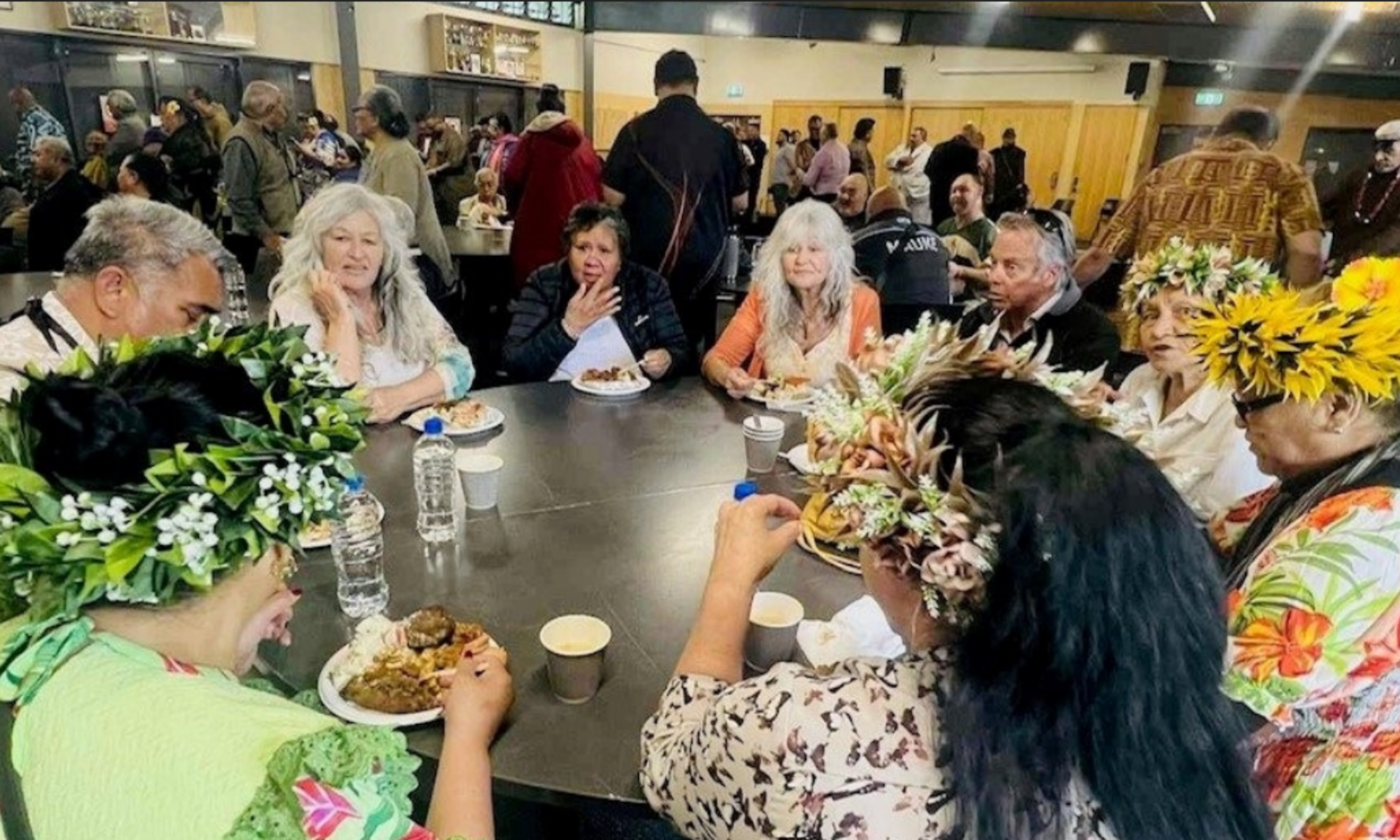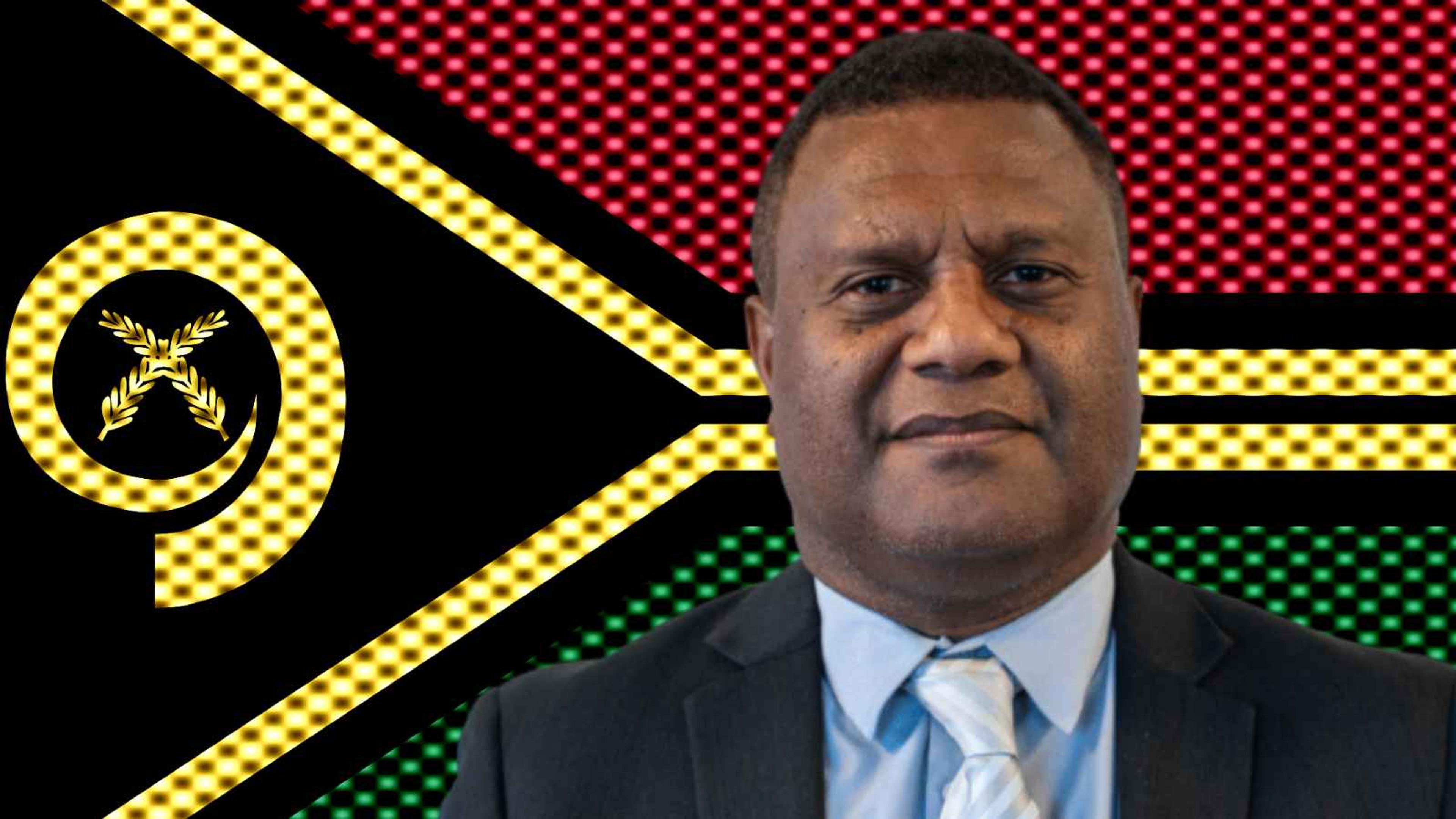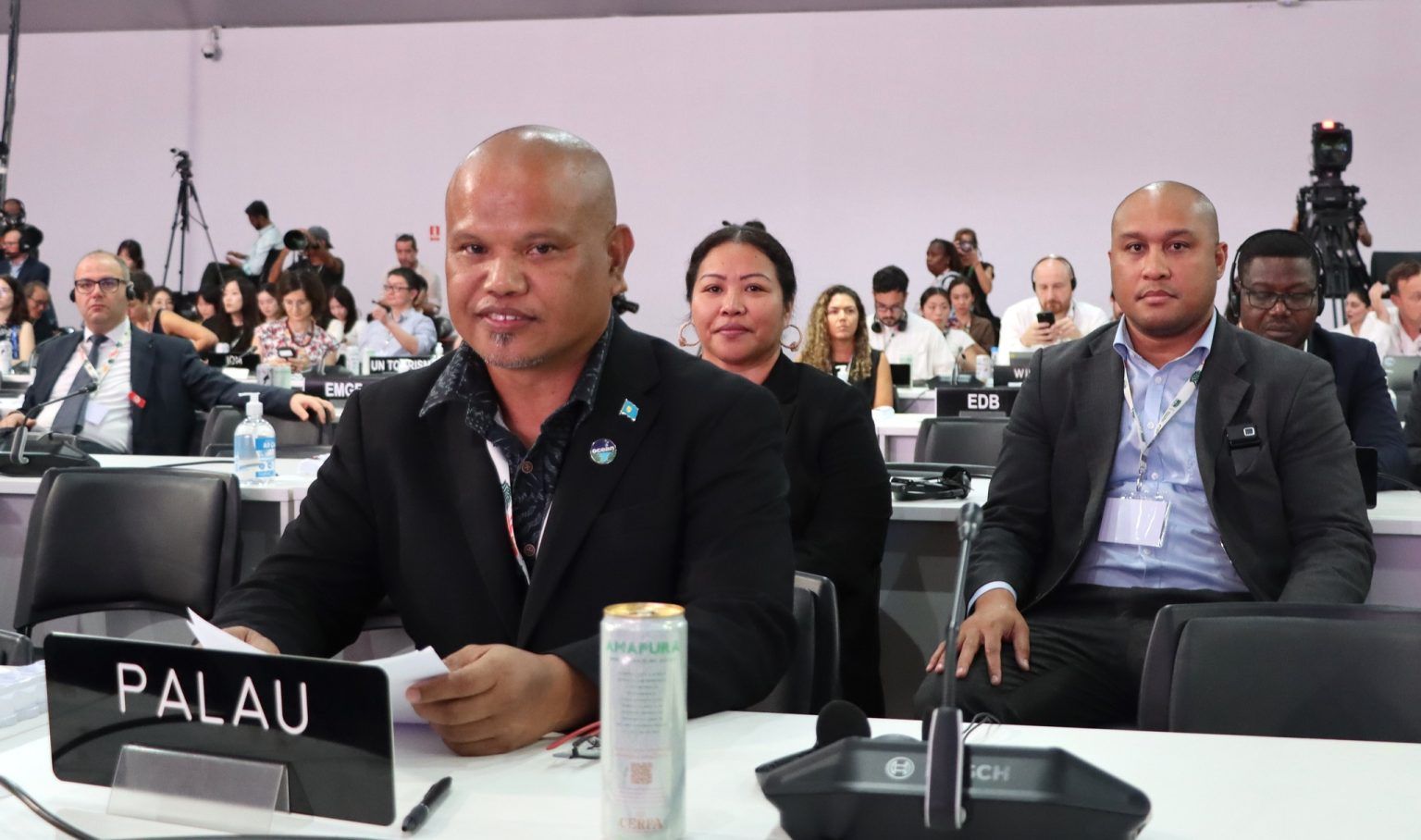

Delegates gather at COP30 in Belém, Brazil, for two weeks of climate negotiations that ended without a fossil fuel phase-out.
Photo/COP30/Stefan Anderson
COP30 leaves Pacific nations facing a future they cannot survive
Global climate talks in Brazil ended without any commitment to phase out fossil fuels and with critical adaptation finance delayed to 2035.


Blacklisting squeeze hits Vanuatu families and businesses, the regulator VFSC warns


Pack your tissues: Free movies return with Tinā set for South Auckland

Manurewa charity requests $30,000 to keep Pacific seniors monthly gatherings

Blacklisting squeeze hits Vanuatu families and businesses, the regulator VFSC warns


Pack your tissues: Free movies return with Tinā set for South Auckland
The United Nations' climate conference in Brazil has ended without any agreement to phase out fossil fuels, leaving Pacific nations warning that the world is drifting even further away from the 1.5°C limit needed to protect their islands, food systems, and communities.
After two weeks of talks at the 2025 Conference of the Parties (COP30) in Belém, nearly 200 countries agreed only to voluntary measures and pushed major decisions into future meetings.
Attempts to include even non-binding language about ending coal, oil, and gas were blocked by more than 100 nations, led by major fossil-fuel producers such as Saudi Arabia and Russia.
For the Pacific, one of the regions most vulnerable to sea-level rise and warming oceans, the result felt like a setback.
Speaking on behalf of the Alliance of Small Island States (AOSIS), Palau’s Environment Minister, Steven Victor, did not mince his words.
“Right now, our people are losing their lives and livelihoods from storms of unprecedented strength. Our coral reefs… are at a tipping point at 1.5 degrees Celsius.”

Palau's Environment Minister Steven Victor says Palau's Environment Minister Steven Victor says Pacific nations are among the most vulnerable to climate change, and urged urgent action to protect their islands, communities, and food systems. Photo/Pasifika EnviroNews/PacnewsPhoto/COP30/Stefan Anderson
Fossil fuel phase-out left out entirely
More than 80 nations, including the United Kingdom and the European Union, pushed for a “fossil fuel roadmap", arguing COP30 should set a clear path to winding down the fuels causing the climate crisis.
But these countries represent only seven per cent of global fossil fuel production, and their proposal failed.
Addressing delegates, Colombian President Gustavo Petro says the refusal to name fossil fuels in the final deal contradicts science. “If the cause of the climate crisis is not clearly stated… everything else is hypocrisy."
With negotiations at risk of collapsing, Brazil announced it would start work on a fossil fuel phase-out plan outside the UN process, with a new “International Conference for the Phase-Out of Fossil Fuels” to be hosted by Colombia in April 2026.

Rising seas and extreme storms threaten Pacific communities, illustrating what is at stake as global emissions remain unchecked. Photo/Facebook/Antony Alex Bagalue
Pacific hopes for climate finance pushed back
Pacific island countries had arrived in Brazil, calling for major increases in adaptation funding, money to protect communities by strengthening coastlines, upgrading hospitals, improving water systems, and preparing for extreme weather.
But COP30 pushed key finance goals from 2030 to 2035, delaying urgent support.
The agreement “calls for” tripling adaptation finance, from the 2021 Glasgow target of US$40 billion (NZ$71.25b) to US$120 billion (NZ$213b) a year by 2035. But no countries committed new money.
Reacting to the COP30 outcome, Jeni Miller, the director of the Global Climate and Health Alliance, says the delay will have real human costs.
“Pushing out the delivery date… means many more people will suffer, many more people will die,” she says in a statement.

More than 100 nations, led by major fossil fuel producers, blocked even non-binding language on ending coal, oil, and gas. Photo/PIFS
Health gains recognised but no funding
One small win came in health. For the first time, the COP30 final text formally recognised the health benefits of reducing emissions, especially cleaner air.
The summit also launched the Belém Health Action Plan, a list of best-practice steps for adapting health systems to climate change. But governments provided no funding, leaving the plan’s future uncertain.
Pacific leaders say time is running out
Pacific negotiators say the outcome shows the widening gap between what science demands and what COPs are delivering.
Inger Andersen, the UN's Environment Programme chief, admits the world is far off track: “We must do much more, move much faster. Escalating climate impacts spare no nation," her statement reads.
In his closing remarks, the UN Secretary-General, António Guterres, says COP30 did not deliver everything needed, but he argued that global cooperation still matters. “This shows that multilateralism is alive… but I cannot pretend COP30 has delivered everything that is needed.”
Looking ahead
Next year’s COP31 will be held in Türkiye (formerly Turkey), with Australia co-presiding over negotiations, a role Pacific nations hope will bring stronger advocacy from a regional partner.
For now, Pacific delegates leave Brazil with the same message they brought: without a rapid phase-out of fossil fuels and major increases in finance, the world’s most vulnerable nations face a future their people cannot survive.